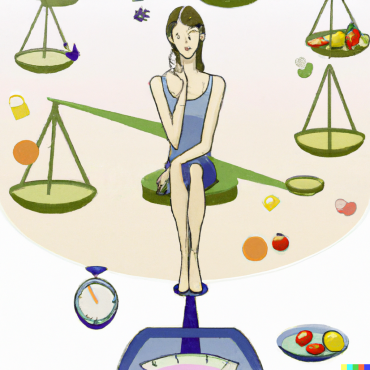“The food you eat can be either the safest & most powerful form of medicine or the slowest form of poison.” – Ann Wigmore
Do we ever pay attention to what we eat and in how much amount? Perhaps we all have a clear and complete idea about the power of proper nutrition, the fundamental part of living a healthy life. Today’s sedentary lifestyle, unhealthy eating habits & routine physical inactivity made us victim of many lifestyle disorders like obesity, high blood pressure, etc. In fact, the marketplace is flooded with too many food choices and with very less nutritional value. In addition, there are nutrition information or inaccurate information that is spread unintentionally all over the INTERNET and popular media. There are apps and websites and free advice everywhere. People look for Diet experts to get nutritional counseling and stick to their dietary advice. The biggest question is just about whether the dietitian is good for you or not. Let us trail through the whereabouts of DIETITIAN’S in promoting the Quality of Life:-

Image Source: authoritynutrition.com
Who are Dietitians?
A dietitian is an expert in dietetics handling human nutrition and the regulation of dietary needs of people of all ages. These FN experts, translate the science of biochemistry, psychology, cooking & physiology into practical solutions for healthy living. They are the only nutrition professionals qualified to assess, diagnose and treat nutritional problems by counseling people on what to eat in order to lead a healthy disease-free lifestyle. She/ he should be trained in the subject of Dietetics which deals with nutrition, its effects on health and the viable role of nutrition in health care.
Registered Dietitians (RD) are the specialists who has gone through formal training at a higher educational institution in food & nutritional science, nutrition education, or dietetics. However, special registration is not yet mandatory for all practicing dietitians in India. Although, in most countries like Canada, United Kingdom, United States, etc. to start practice as Dietitian, one must qualify in the Registered Dietitian (RD) examination. Therefore, at the time of first Dietitian meet-up ensure that the one you confer with has a strong academic background in dietetics &/or nutrition and not just a one month course.
- Graduate in Nutrition & Dietetics
- Post Graduate Diploma in Nutrition & Dietetics
- Masters in Nutrition & Dietetics or Masters in Food and Nutrition

Image Source: www.recipes-for-vegetarians.com
Where do they work?
Nutrition and Dietetics is a prima flourishing branch of knowledge with never-ending job prospects in a variety of settings from clinical to community and public policy to media communications. Dietitians provide solutions to nutritional problems and medical issues by appropriate dietary modifications. They supervise the preparation and service of food, develop modified diets, participate in research, and educate individuals and groups on good nutritional habits.
Dietitians’ practice areas:-
- Therapeutic / or Clinical dietitians (Health care providers)
- Community dietitians (Public health organizations)
- Food service dietitians (School cafeteria)
- Neonatal &/or Pediatric dietitians
- Research dietitians (Food industry)
- Consultant dietitians and
- Other non-traditional dietetics settings (Freelance Journalism, Corporate wellness programs)
What Does a Dietician really do?
The role of a dietitian is to educate people about the healthy relationship between food consumed a.k.a. diet and lifestyle. The goals of dietitians are to provide medical nutritional intervention, and to obtain, safely prepare, serve and advise on flavorsome, attractive, and nutritious food for patients, groups and communities. Thanks to lifestyle changes, their role in promotive health care is vital. A good Diet expert always consider following important factors that helps in setting up nutritional goals at some time in the course of diet counseling session.
- Age
- Gender
- Current dietary pattern
- Food preferences
- General health history
- Health goals
- Lifestyle: eating and exercise habits
- Likes & dislikes Favorite foods
- Occupational constraints: Sickness or work routine
- Stress levels

Image Source: www.anutritionisteats.com
Why do we need a Dietitian?
Health care is all about being well and fit. Healthy habits aren’t just about what you eat, but how you plan to eat. It’s actually very important to have a good health to experience for a life time. Increased attention on disease prevention through better dietary habits has heightened the demand for skilled nutrition professionals. So, the demand for the dietitian uprise to furnish food and nutrition information to help people of all age improve their health.
- Optimal health
- Child care
- Pregnant and nursing women
- Cholesterol management
- Diabetes management
- Renal care
- Senior citizen
- Weight management
- Athletic performance
In the end, I appeal you to trust a dietitian to know about nutrition and live healthily ever-after. They render solutions to nutrition problems and boost good health through correct eating habits. Educating and counseling individuals on healthy nutritional habits is the backbone of their occupation.
Image Source: authoritynutrition.com

























































Comments